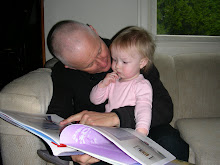When the church, as now, is caught in a confusion of conflicting voices it is difficult to know where to turn for help in finding our way through the jungle of disagreement. Most often we seem to turn to academics. We look to our theologians for wisdom. We hope that their careful parsing of verbs and analyzing of doctrine will uncover a magical land where we can all agree.
I have no doubt theology can play a valuable role in the Christian enterprise. But I am not sure theology has the power to guide us out of our present impasse.
Theology, as frequently practiced in our day, may lack the skills to lead us out of the barren land of disputation. It does not have the map to guide us beyond the polarities that paralyze church discourse. Too often it focuses its energy on the bad guys, identifying the heretics and making sure we all know who they are and why they are so dangerous.
At its worst theology seeks to fit imponderables into neat categories, pitting one position against another. Done poorly theology hopes to find truth in whichever argument is judged most reasonable at the end of the day. At its best theology leads us to the edge of knowing and confronts us with inexpressible mysteries beyond expressing. As Walt Whitman said, “Logic and sermons never convince,/The damp of the night drives deeper into my soul.” (Leaves of Grass)
So, perhaps we should turn instead to the poet for wisdom in the turmoil of our time. Theology (theo logos – “God words”) may be more suited to poetry than to argument. When it comes to the deep things of life, the best we can hope for is to evoke. Precision of definition is beyond human capacity.
Poetry travels a path to knowing that journeys through the land of faith. We find this path in a way more analogous to our apprehension of beauty than the solving of a mathematical problem. As John Keats wrote, “‘Beauty is truth, truth beauty,’ – that is all/ Ye know on earth, and all ye need to know.” (“Ode on a Grecian Urn”) Beauty is not right or wrong. It transcends the polarized categories in which faith cannot long survive.
Faith is born where beauty is beheld, in the heart. Faith comes from softening and opening. It is found in the land of not-knowing. It emerges when we surrender in the depths of our being to a power greater and higher than our reason or our understanding. Faith travels the territory where we acknowledge that our words are, at best, vague approximations of the deep realities to which they call us to surrender.
Perhaps a poet like Mary Oliver might guide us out of the tangle of our contradictions. Poetry Mary Oliver says seeks not to prove or to convince, but to open our hearts,
I tell you this
to break your heart,
by which I mean only
that it break open and never close again
to the rest of the world. (New and Selected Poems, 2005)
Poetry wants to lead us to bow down before the wonder and mystery that is life,
Let me keep company always with those who say
“Look!” and laugh in astonishment,
and bow their heads. (Evidence, 2009)
Perhaps the church would move forward in a more life-giving direction if we joined Mary Oliver and prayed,
God, rest in my heart
and fortify me,
take away my hunger for answers (Red Bird, 2008)
Theology points to the limitations of our ability to provide answers. Poetry asks us to step into the mystery, letting go of our determination to understand, opening to the possibility of living with the tangle and complexity our minds produce. The poet calls us to soften and expand embracing a dark way of knowing beyond the ability of reason to express.
In the poem we may find space for views of the world that seem on the surface to be incompatible. Poetry speaks to that deeper place within us where we discover that that which seemed to divide no longer separates.

1 comment:
Christopher, you write: "When it comes to the deep things of life, the best we can hope for is to evoke. Precicion of definintion is beyond human capacity."
I think this is so true. It is when we have the courage to express ourselves creatively that we are able to 'call forth' an experience of truth for others.
Kirsten
Post a Comment